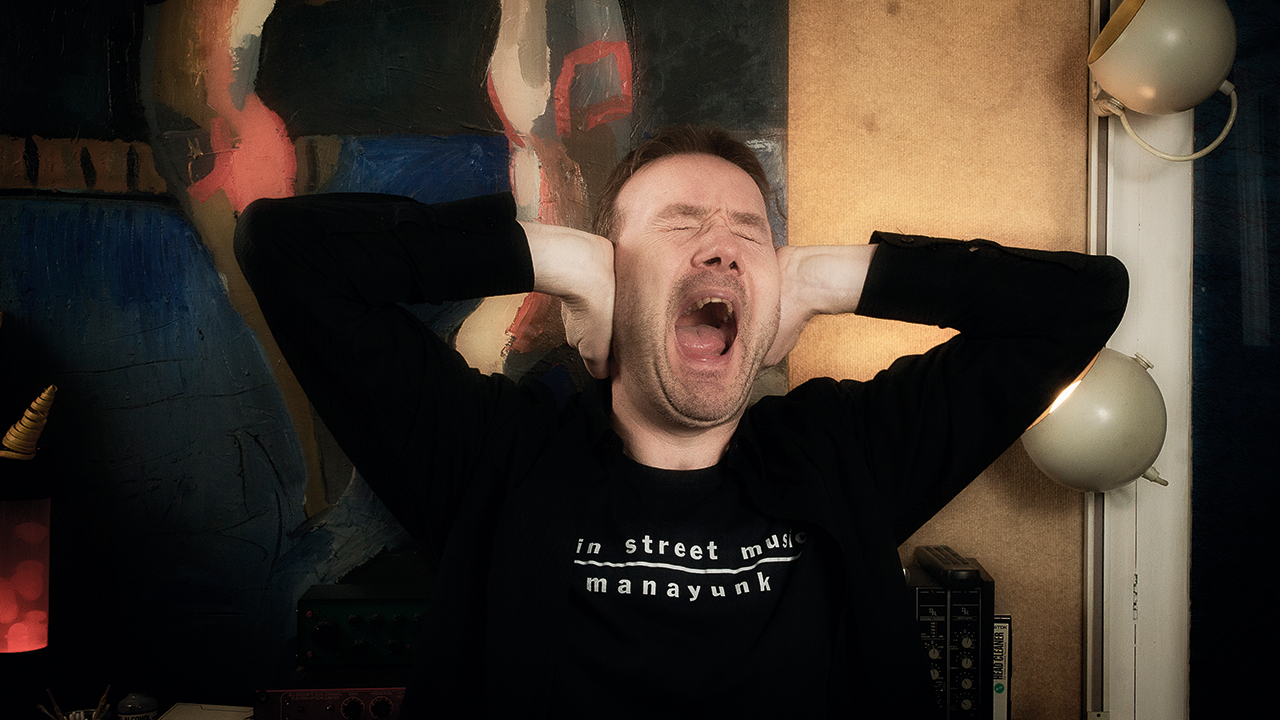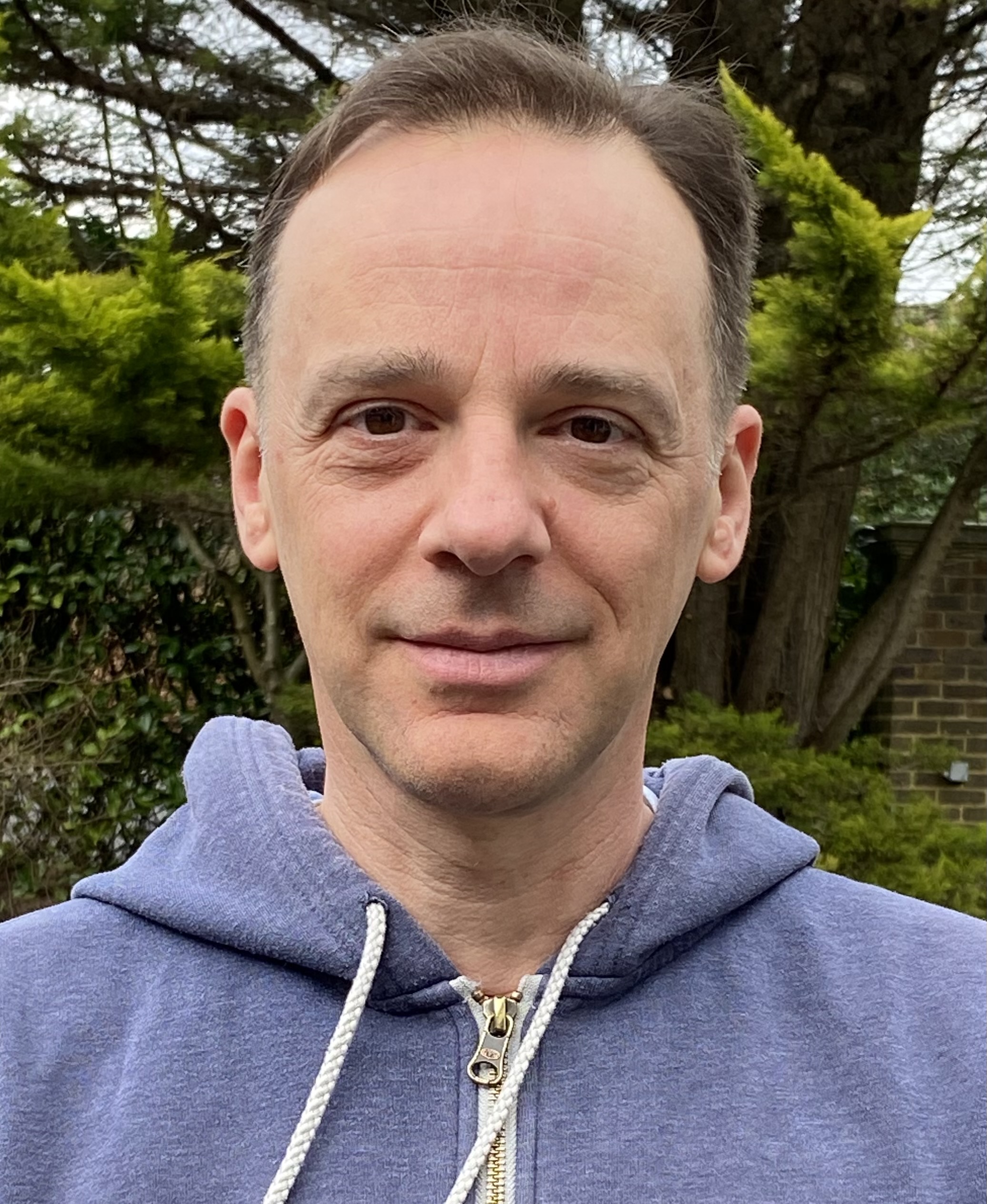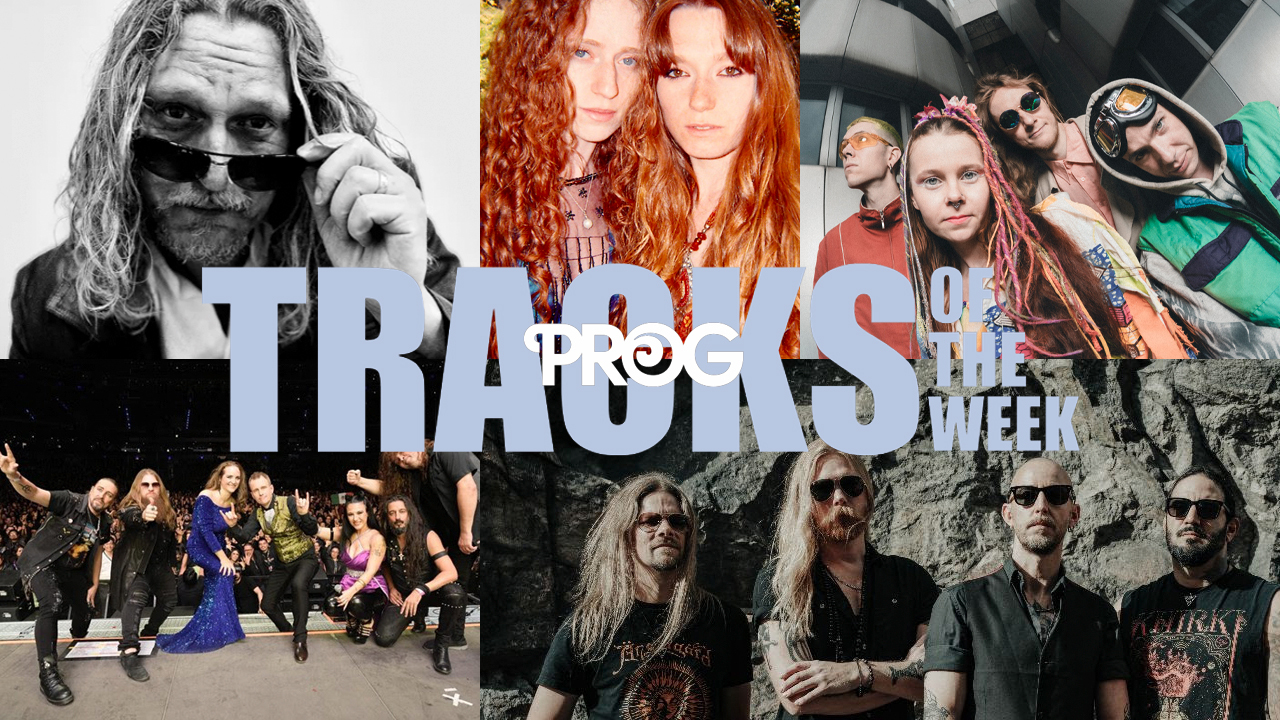"My hope is that most fans of progressive music are fans of experimental stuff, so I leave it in their capable hands." How Simon Godfrey returned with Shineback
Having led Tinyfish for nine years, Simon Godfrey has taken a sharp left turn with Rise Up Forgotten, Return Destroyed, his first album as Shineback.

Insomnia, tinnitus and electronica were oll parts of the conversation back in 2013 when Prog discussed former Tiynfish frontman Simon Godfrey's one project Tnyfish and their debut album Rise Up Forgotten, Return Destroyed.
Tinyfish frontman Simon Godfrey has forged a singular identity for his band over the past eight years, but this summer sees him unleash his debut solo album as Shineback. Rise Up Forgotten, Return Destroyed tells the story of a girl, Dora, who has a sleep condition. It’s a topic close to home for Godfrey, a lifelong insomniac. “It’s nowhere near as bad as it used to be,” he explains, “but there are many different kinds of sleep therapies that people with insomnia use.”
One such therapy is lucid dreaming. The album depicts Dora falling asleep and blogging from her dreams with an imaginary video camera. “She unlocks some memories,” says its creator, “and things go downhill from there – so, a happy story!”
The album contains a few influences from Godfrey’s own struggles with lack of sleep, and the name Shineback is a euphemism for the mirror he holds up to himself.
“This is a very personal album for me. A lot of my childhood and my attitudes towards life are woven into the album.”
In one song, Crush Culture, Dora encounters a large club. “In it she discovers all the people in her life that she has forgotten about who are endlessly dancing in this club, until she remembers them and then they are set free. These are childhood dreams, my imaginings from when I was a 10-year-old.”
The album also features mysterious characters called Envoys, who “act like the police force of the dream and guide Dora as best they can, and she makes her own decisions based upon where they lead her”.
Sign up below to get the latest from Prog, plus exclusive special offers, direct to your inbox!

Rise Up Forgotten, Return Destroyed is a fascinating album conceptually but, as its title readily signposts, it’s hardly a cheery listen. Godfrey doesn’t consider himself to be a particularly depressive or negative person and is at pains to stress that the album is not entirely autobiographical. “Dora believes that her real-life father abuses her as a child and she only remembers this as she’s walking through her dream, but there is a dual aspect to the album and the titles reflect that. The whole idea is whether she is imagining this or is it real. I’ve tried to programme a sense of duality into almost every lyric.”
The album is also deliberately structured into two parts. “I wanted the story to unfold from a narrative point of view. There’s a plot development trick where you put your character into a tree, throw rocks at them and then get them back out of the tree. That’s a great metaphor about establishing your character, putting them into a situation and then getting them out again. That’s why I made it in two halves – the first half is the ‘putting the character into the tree and throwing rocks’, and the second half is the ‘getting them out of the tree’.”
Godfrey also decided to give the album a musical as well as lyrical narrative. “I wanted the first half of the album to be a lot more straightforward and poppy, with the second half being more complex.”
It’s likely, however, that most progressive fans, including Tinyfish’s loyal band of followers, will find Rise Up Forgotten... a challenging listen from start to finish. While close attention is essential to follow the plot, musically this is a departure
from Tinyfish, notably in the significant electronica elements incorporated into the album. Guitars and drums are largely conspicuous by their absence.
The choice of instrumentation was partly Godfrey’s choice, but it was borne also of necessity because of his suffering from that curse of musicians worldwide. “Tinnitus has been a major bugbear for me for some time, but it’s become acute over the past few years,” he says. This played a large part in Tinyfish’s retirement from live shows, but Godfrey has found a positive aspect to this most trying of conditions. He realised that his next project might be the last before tinnitus brought an end to his musical endeavours, and found himself liberated.
“It enabled me to break down all the barriers between genres,” he says. “I wasn’t worried about whether or not I was making a song for some fans. I was just making music that I like and enjoy doing.”
There is a second, more prosaic, reason behind Godfrey’s sharp left musical turn. Immediately after Tinyfish’s second album, 2010’s The Big Red Spark, Godfrey played some demos he’d recorded to the band’s drummer, Leon Camfield, who observed that the material sounded like The Big Red Spark Part 2, and that served as a warning for Godfrey. “I decided that, rather than just plough straight ahead into another Tinyfish album and run the risk of making the same record again, I would take some time out.”
He was inspired to reinvent himself in the manner of King Crimson with their assorted ProjeKCts. “Shineback is the product of that departure in the hope that when we come back together as Tinyfish we will have all moved on as musicians and writers.”
For the time being Godfrey isn’t seeking to second-guess the reaction of Tinyfish’s audience to his Shineback efforts. “This is the most honest record I’ve produced. I would love people to like it but I recognise it’s a challenging album if you’re a progressive rock fan because it’s not all about that. But my hope is that most fans of progressive music are fans of experimental stuff, so I leave it in their capable hands in the hope that they will see what I’m trying to achieve.”
Godfrey readily accepts that while stretching himself, he is also stretching his natural audience and, as a consequence, Rise Up Forgotten... is likely to have finite appeal. “I fully recognise that it’s not going to reach everybody. But you know the old adage – if
I was trying to please everybody I’d end up pleasing nobody. So it’s better to hold my hand up and say this is me and if you don’t like it, fair enough. “There’s music out there which I don’t particularly like either, but that doesn’t mean it’s bad music; it’s just not for me. I’m sure there will be an element of that with Shineback.”
Perhaps the most challenging aspect for many prog fans will be the electronica elements. Godfrey concedes there may be some people who are antipathetic towards the programming on the album. “But progressive rock has always been a genre that looks to the cutting edge of technology,” he offers. “In the 60s and 70s the best progressive bands were using the most up-to-date technology. So many prog bands were at the forefront of the synthesiser movement.”

His decision not to use his guitar here was a conscious one. “There were a couple of instances where it would have been easier and maybe quicker for me, but I laid it to one side and decided to write using nothing but my keyboard and a mouse, in an effort to stop those familiar chords falling under my fingers. I think I’ve achieved that.”
When it came to the requisite guitar parts for the album he called upon assorted guests, including Matt Stevens (from The Fierce And The Dead), Dec Burke (formerly of Frost* and Darwin’s Radio) and DeeExpus’ Andy Ditchfield. While most of the drums on the album are programmed, Henry Rogers from DeeExpus and Touchstone plays on the title track. “So there are enough traditional players on the album to make sure that it’s not entirely electronic, with me clicking a mouse or using synths all the time. They really add a level of virtuosity.” Indeed Godfrey is modest about his own musicianship. “I’ve only ever considered myself to be a strummer and a singer, but these guys are real players and I love what they do.”
Rise Up Forgotten... also makes only limited use of Godfrey’s Tinyfish compadres. Their lyricist Robert Ramsay contributed to the album, while bass player Paul Worwood appears as a voice artist. “Paul plays a very nasty character on the album,” says Godfrey. “It’s quite a creepy part. I don’t know where he managed to pull that from!”
Rise Up Forgotten… may have only just been unveiled, but Godfrey is already giving thought to Shineback as a continuing outlet for his solo work. “I like the idea of compartmentalising my projects, and there are a couple of other projects which I might embark upon with separate names. But there will be another Shineback album if time presents itself.”
However, his immediate priority is to regroup with Tinyfish to start writing a new album. “As long as we’re creating music then there will still be a Tinyfish. I recognise that our live act was a significant part of who we were, but it wasn’t the be-all and end-all. Perhaps we can put together some acoustic shows and maybe even at some point, when the technology is more mature, I can walk back on stage with an electric guitar. As long as the five of us are in the studio making music together, Tinyfish is alive and kicking.”
Godfrey may be down, but he’s most certainly not out.
Nick Shilton has written extensively for Prog since its launch in 2009 and prior to that freelanced for various music magazines including Classic Rock. Since 2019 he has also run Kingmaker Publishing, which to date has published two acclaimed biographies of Genesis as well as Marillion keyboardist Mark Kelly’s autobiography, and Kingmaker Management (looking after the careers of various bands including Big Big Train). Nick started his career as a finance lawyer in London and Paris before founding a leading international recruitment business and has previously also run a record label.

